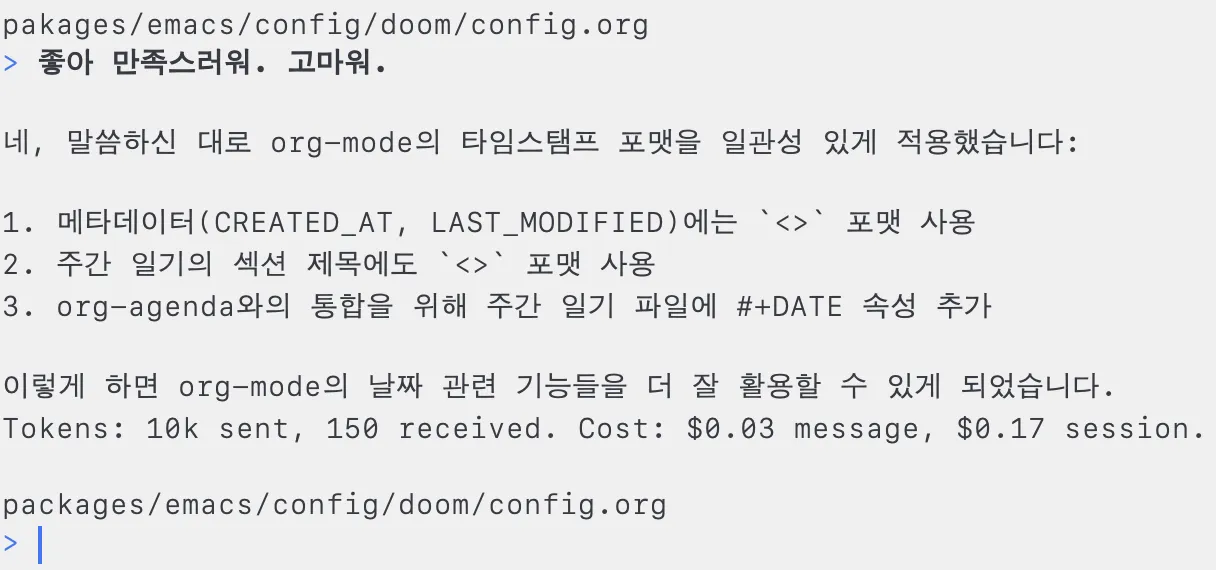Hello, World!
洪 民憙 (Hong Minhee)
@hongminhee@hackers.pub · 668 following · 435 followers
Hi, I'm who's behind Fedify, Hollo, BotKit, and this website, Hackers' Pub!
Fedify, Hollo, BotKit, 그리고 보고 계신 이 사이트 Hackers' Pub을 만들고 있습니다.
Website
- hongminhee.org
GitHub
- @dahlia
Hollo
- @hongminhee@hollo.social
DEV
- @hongminhee
velog
- @hongminhee
Qiita
- @hongminhee
Zenn
- @hongminhee
Matrix
- @hongminhee:matrix.org
X
- @hongminhee
여기 자바스크립트맥주 한병 주세요
나도 어디서 초대받아서 해커스펍 계정을 하나 만들까... 🤔
나도 해커주점 계정만들고싶다
해커주점에 가입했습니다. 한잔해~
드디어 가입됐다
액티비티펍 contentMap으로 여러 언어 넣으면 알아듣는 구현체가 있나
![]() Liaizon Wakest replied to the below article:
Liaizon Wakest replied to the below article:
Hello World!
Liaizon Wakest @wakest@hackers.pub
This post serves as an introductory message to the Hackers' Pub community. The author expresses gratitude for being invited by @hongminhee and marks this as their initial contribution to the platform. It's a simple greeting to establish their presence and begin engaging with other members of the community.
Read more →![]() 洪 民憙 (Hong Minhee) shared the below article:
洪 民憙 (Hong Minhee) shared the below article:
Hello World!
Liaizon Wakest @wakest@hackers.pub
This post serves as an introductory message to the Hackers' Pub community. The author expresses gratitude for being invited by @hongminhee and marks this as their initial contribution to the platform. It's a simple greeting to establish their presence and begin engaging with other members of the community.
Read more →![]() @hongminhee洪 民憙 (Hong Minhee)
@hongminhee洪 民憙 (Hong Minhee) ![]() @liaizonwakest ⁂ Just sent! Check your inbox!
@liaizonwakest ⁂ Just sent! Check your inbox!
깃에 대형 바이너리 파일을 다루려고 LFS를 붙이고 나서 예상한 동작이지만 이게 맞나? 싶었던게 한 브랜치에서 바이너리 파일에 락을 걸면 모든 브랜치에 있는 같은 파일에 락이 걸림. 이게 의도한 동작이긴 한데 근본적으로 깃의 dvcs 개념을 망가뜨리는 거잖음? 그래서 깃에 LFS를 붙인 결과는 예상대로 동작하기는 하지만 깃 기반으로 사용하면 안된다고 생각하기로 함.
Theres a new interview with ![]() @hongminhee洪 民憙 (Hong Minhee) (of
@hongminhee洪 民憙 (Hong Minhee) (of @fedifyFedify: an ActivityPub server framework,
@holloHollo
 , and now #Ghost fame). It's in with Korean subtitles but quite readable with YouTube's autogenerated English subs.
, and now #Ghost fame). It's in with Korean subtitles but quite readable with YouTube's autogenerated English subs.
https://www.youtube.com/watch?v=sqxR8zscSDo
https://hollo.social/@hongminhee/0195a85a-6a29-71fa-a60f-3e79c1295b05 #fediverse #fedidev
해커스펍을 더 흥하게 할 수 있는 아이디어가 하나 더 생각났다,, 다음주 주말쯤에 보따리 봉인 풀어야지 캬캬캬
정말... 로컬에서 마이크로커밋 하라면서 정작 스쿼시로 날려버릴 때 “왜??????????” 라고 생각한 적이 있다.
https://hackers.pub/@bgl/0195bda7-f18d-72eb-8933-81e819715410
두둥 뉴비 등장,,!
개발자 한 100명 정도 해커스펍에 오면 사실상 트위터 개발자 타임라인이랑 비슷한 리젠율 찍을듯
아니다. 한 50명 찍어도 그 정도 되겠다
개발자 한 100명 정도 해커스펍에 오면 사실상 트위터 개발자 타임라인이랑 비슷한 리젠율 찍을듯
그동안(10+년;;) git이 엄청 잘만든 물건 같지는 않다고 생각하며 대충 쓰고있었는데, 요즘 branch 개념 자체가 근본적인 실수란 생각이 들기 시작했다. branch 대신에 변경의 시작과 끝, 양 끝점을 가지는 interval을 쓰는게 맞는거 같다(카테고리 이론의 작은 교훈: primitive는 양 끝점을 가지는게 좋다).
git을 쓰면 히스토리 길어진다고 squash merge 등을 하는데, (나도 하지만) 사실 기껏 만들어놓은 히스토리를 뭉개버리는 말도 안되는 동작이다. 만약 interval을 쓴다면 히스토리는 그대로 남기고 UI 단에서 fold/unfold 등을 해줄수 있을 것이다.
Darcs 등이 interval에 기초하는데, 지금은 일이 너무 바빠서 시도할 여유가 없다. 한번 숨고를 시간이 주어지면 멀쩡한 VCS를 탐색하는 시간을 가질것이다.
HackersPub을 통해 개발자들 위주로 연합우주 타임라인이 계속 핫해질듯...!!!
해커스펍! 계속 흥한다!
해커펍은 퍼머링크로 아카이빙 참조하기 최적이라 생각해서 앞으로 기술을 다루며 기록 및 참조하는 용도로 잘 사용하려고 합니다.
트위터는 나중에 다른 사람에게 보여줄 참조용으로 쓰기에는 너무 정보 대비 소음이 많은 특성 때문에 잘 맞지 않는다고 생각합니다.
https://github.com/dahlia/hackerspub/pull/12
해커스펍의 멘션 기능에 가독성 개선이 필요할 것 같아서 제안하는 느낌으로 PR은 올렸는데, 다른 분들도 어떤 의견을 가지고 계실지 모르겠다
![]() 유루메 Yurume replied to the below article:
유루메 Yurume replied to the below article:
Revisiting Java's Checked Exceptions: An Underappreciated Type Safety Feature
洪 民憙 (Hong Minhee) @hongminhee@hackers.pub
Despite their bad reputation in the Java community, checked exceptions provide superior type safety comparable to Rust's Result<T, E> or Haskell's Either a b—we've been dismissing one of Java's best features all along.
Introduction
Few features in Java have been as consistently criticized as checked exceptions. Modern Java libraries and frameworks often go to great lengths to avoid them. Newer JVM languages like Kotlin have abandoned them entirely. Many experienced Java developers consider them a design mistake.
But what if this conventional wisdom is wrong? What if checked exceptions represent one of Java's most forward-thinking features?
In this post, I'll argue that Java's checked exceptions were ahead of their time, offering many of the same type safety benefits that are now celebrated in languages like Rust and Haskell. Rather than abandoning this feature, we should consider how to improve it to work better with modern Java's features.
Understanding Java's Exception Handling Model
To set the stage, let's review how Java's exception system works:
-
Unchecked exceptions (subclasses of
RuntimeExceptionorError): These don't need to be declared or caught. They typically represent programming errors (NullPointerException,IndexOutOfBoundsException) or unrecoverable conditions (OutOfMemoryError). -
Checked exceptions (subclasses of
Exceptionbut notRuntimeException): These must either be caught withtry/catchblocks or declared in the method signature withthrows. They represent recoverable conditions that are outside the normal flow of execution (IOException,SQLException).
Here's how this works in practice:
// Checked exception - compiler forces you to handle or declare it
public void readFile(String path) throws IOException {
Files.readAllLines(Path.of(path));
}
// Unchecked exception - no compiler enforcement
public void processArray(int[] array) {
int value = array[array.length + 1]; // May throw ArrayIndexOutOfBoundsException
}The Type Safety Argument for Checked Exceptions
At their core, checked exceptions are a way of encoding potential failure modes into the type system via method signatures. This makes certain failure cases part of the API contract, forcing client code to explicitly handle these cases.
Consider this method signature:
public byte[] readFileContents(String filePath) throws IOExceptionThe throws IOException clause tells us something critical: this method might fail in ways related to IO operations. The compiler ensures you can't simply ignore this fact. You must either:
- Handle the exception with a try-catch block
- Propagate it by declaring it in your own method signature
This type-level representation of potential failures aligns perfectly with principles of modern type-safe programming.
Automatic Propagation: A Hidden Advantage
One often overlooked advantage of Java's checked exceptions is their automatic propagation. Once you declare a method as throws IOException, any exception that occurs is automatically propagated to the caller without additional syntax.
Compare this with Rust, where you must use the ? operator every time you call a function that returns a Result:
// Rust requires explicit propagation with ? for each call
fn read_and_process(path: &str) -> Result<(), std::io::Error> {
let content = std::fs::read_to_string(path)?;
process_content(&content)?;
Ok(())
}
// Java automatically propagates exceptions once declared
void readAndProcess(String path) throws IOException {
String content = Files.readString(Path.of(path));
processContent(content); // If this throws IOException, it's automatically propagated
}In complex methods with many potential failure points, Java's approach leads to cleaner code by eliminating the need for repetitive error propagation markers.
Modern Parallels: Result Types in Rust and Haskell
The approach of encoding failure possibilities in the type system has been adopted by many modern languages, most notably Rust with its Result<T, E> type and Haskell with its Either a b type.
In Rust:
fn read_file_contents(file_path: &str) -> Result<Vec<u8>, std::io::Error> {
std::fs::read(file_path)
}When calling this function, you can't just ignore the potential for errors—you need to handle both the success case and the error case, often using the ? operator or pattern matching.
In Haskell:
readFileContents :: FilePath -> IO (Either IOException ByteString)
readFileContents path = try $ BS.readFile pathAgain, the caller must explicitly deal with both possible outcomes.
This is fundamentally the same insight that motivated Java's checked exceptions: make failure handling explicit in the type system.
Valid Criticisms of Checked Exceptions
If checked exceptions are conceptually similar to these widely-praised error handling mechanisms, why have they fallen out of favor? There are several legitimate criticisms:
1. Excessive Boilerplate in the Call Chain
The most common complaint is the boilerplate required when propagating exceptions up the call stack:
void methodA() throws IOException {
methodB();
}
void methodB() throws IOException {
methodC();
}
void methodC() throws IOException {
// Actual code that might throw IOException
}Every method in the chain must declare the same exception, creating repetitive code. While automatic propagation works well within a method, the explicit declaration in method signatures creates overhead.
2. Poor Integration with Functional Programming
Java 8 introduced lambdas and streams, but checked exceptions don't play well with them:
// Won't compile because map doesn't expect functions that throw checked exceptions
List<String> fileContents = filePaths.stream()
.map(path -> Files.readString(Path.of(path))) // Throws IOException
.collect(Collectors.toList());This forces developers to use awkward workarounds:
List<String> fileContents = filePaths.stream()
.map(path -> {
try {
return Files.readString(Path.of(path));
} catch (IOException e) {
throw new UncheckedIOException(e); // Wrap in an unchecked exception
}
})
.collect(Collectors.toList());3. Interface Evolution Problems
Adding a checked exception to an existing method breaks all implementing classes and calling code. This makes evolving interfaces over time difficult, especially for widely-used libraries and frameworks.
4. Catch-and-Ignore Anti-Pattern
The strictness of checked exceptions can lead to the worst possible outcome—developers simply catching and ignoring exceptions to make the compiler happy:
try {
// Code that might throw
} catch (Exception e) {
// Do nothing or just log
}This is worse than having no exception checking at all because it provides a false sense of security.
Improving Checked Exceptions Without Abandoning Them
Rather than abandoning checked exceptions entirely, Java could enhance the existing system to address these legitimate concerns. Here are some potential improvements that preserve the type safety benefits while addressing the practical problems:
1. Allow lambdas to declare checked exceptions
One of the biggest pain points with checked exceptions today is their incompatibility with functional interfaces. Consider how much cleaner this would be:
// Current approach - forced to handle or wrap exceptions inline
List<String> contents = filePaths.stream()
.map(path -> {
try {
return Files.readString(Path.of(path));
} catch (IOException e) {
throw new RuntimeException(e);
}
})
.collect(Collectors.toList());
// Potential future approach - lambdas can declare exceptions
List<String> contents = filePaths.stream()
.map((String path) throws IOException -> Files.readString(Path.of(path)))
.collect(Collectors.toList());This would require updating functional interfaces to support exception declarations:
@FunctionalInterface
public interface Function<T, R, E extends Exception> {
R apply(T t) throws E;
}2. Generic exception types in throws clauses
Another powerful enhancement would be allowing generic type parameters in throws clauses:
public <E extends Exception> void processWithException(Supplier<Void, E> supplier) throws E {
supplier.get();
}This would enable much more flexible composition of methods that work with different exception types, bringing some of the flexibility of Rust's Result<T, E> to Java's existing exception system.
3. Better support for exception handling in functional contexts
Unlike Rust which requires the ? operator for error propagation, Java already automatically propagates checked exceptions when declared in the method signature. What Java needs instead is better support for checked exceptions in functional contexts:
// Current approach for handling exceptions in streams
List<String> contents = filePaths.stream()
.map(path -> {
try {
return Files.readString(Path.of(path));
} catch (IOException e) {
throw new RuntimeException(e); // Lose type information
}
})
.collect(Collectors.toList());
// Hypothetical improved API
List<String> contents = filePaths.stream()
.mapThrowing(path -> Files.readString(Path.of(path))) // Preserves checked exception
.onException(IOException.class, e -> logError(e))
.collect(Collectors.toList());4. Integration with Optional<T> and Stream<T> APIs
The standard library could be enhanced to better support operations that might throw checked exceptions:
// Hypothetical API
Optional<String> content = Optional.ofThrowable(() -> Files.readString(Path.of("file.txt")));
content.ifPresentOrElse(
this::processContent,
exception -> log.error("Failed to read file", exception)
);Comparison with Other Languages' Approaches
It's worth examining how other languages have addressed the error handling problem:
Rust's Result<T, E> and ? operator
Rust's approach using Result<T, E> and the ? operator shows how propagation can be made concise while keeping the type safety benefits. The ? operator automatically unwraps a successful result or returns the error to the caller, making propagation more elegant.
However, Rust's approach requires explicit propagation at each step, which can be more verbose than Java's automatic propagation in certain scenarios.
Kotlin's Approach
Kotlin made all exceptions unchecked but provides functional constructs like runCatching that bring back some type safety in a more modern way:
val result = runCatching {
Files.readString(Path.of("file.txt"))
}
result.fold(
onSuccess = { content -> processContent(content) },
onFailure = { exception -> log.error("Failed to read file", exception) }
)This approach works well with Kotlin's functional programming paradigm but lacks compile-time enforcement.
Scala's Try[T], Either[A, B], and Effect Systems
Scala offers Try[T], Either[A, B], and various effect systems that encode errors in the type system while integrating well with functional programming:
import scala.util.Try
val fileContent: Try[String] = Try {
Source.fromFile("file.txt").mkString
}
fileContent match {
case Success(content) => processContent(content)
case Failure(exception) => log.error("Failed to read file", exception)
}This approach preserves type safety while fitting well with Scala's functional paradigm.
Conclusion
Java's checked exceptions were a pioneering attempt to bring type safety to error handling. While the implementation has shortcomings, the core concept aligns with modern type-safe approaches to error handling in languages like Rust and Haskell.
Copying Rust's Result<T, E> might seem like the obvious solution, but it would represent a radical departure from Java's established paradigms. Instead, targeted enhancements to the existing checked exceptions system—like allowing lambdas to declare exceptions and supporting generic exception types—could preserve Java's unique approach while addressing its practical limitations.
The beauty of such improvements is that they'd maintain backward compatibility while making checked exceptions work seamlessly with modern Java features like lambdas and streams. They would acknowledge that the core concept of checked exceptions was sound—the problem was in the implementation details and their interaction with newer language features.
So rather than abandoning checked exceptions entirely, perhaps we should recognize them as a forward-thinking feature that was implemented before its time. As Java continues to evolve, we have an opportunity to refine this system rather than replace it.
In the meantime, next time you're tempted to disparage checked exceptions, remember: they're not just an annoying Java quirk—they're an early attempt at the same type safety paradigm that newer languages now implement with much celebration.
What do you think? Could these improvements make checked exceptions viable for modern Java development? Or is it too late to salvage this controversial feature? I'm interested in hearing your thoughts in the comments.
![]() @hongminhee洪 民憙 (Hong Minhee) Totally agreed. The main problem with the original incarnation of Java's checked exceptions was that it was quite verbose and didn't give an easy way to compress a set of error types (because there is no
@hongminhee洪 民憙 (Hong Minhee) Totally agreed. The main problem with the original incarnation of Java's checked exceptions was that it was quite verbose and didn't give an easy way to compress a set of error types (because there is no typedef or such in Java). Zig-style syntax could be easily adapted to checked exceptions for the reasonable convenience.
![]() Emelia 👸🏻 replied to the below article:
Emelia 👸🏻 replied to the below article:
Revisiting Java's Checked Exceptions: An Underappreciated Type Safety Feature
洪 民憙 (Hong Minhee) @hongminhee@hackers.pub
Despite their bad reputation in the Java community, checked exceptions provide superior type safety comparable to Rust's Result<T, E> or Haskell's Either a b—we've been dismissing one of Java's best features all along.
Introduction
Few features in Java have been as consistently criticized as checked exceptions. Modern Java libraries and frameworks often go to great lengths to avoid them. Newer JVM languages like Kotlin have abandoned them entirely. Many experienced Java developers consider them a design mistake.
But what if this conventional wisdom is wrong? What if checked exceptions represent one of Java's most forward-thinking features?
In this post, I'll argue that Java's checked exceptions were ahead of their time, offering many of the same type safety benefits that are now celebrated in languages like Rust and Haskell. Rather than abandoning this feature, we should consider how to improve it to work better with modern Java's features.
Understanding Java's Exception Handling Model
To set the stage, let's review how Java's exception system works:
-
Unchecked exceptions (subclasses of
RuntimeExceptionorError): These don't need to be declared or caught. They typically represent programming errors (NullPointerException,IndexOutOfBoundsException) or unrecoverable conditions (OutOfMemoryError). -
Checked exceptions (subclasses of
Exceptionbut notRuntimeException): These must either be caught withtry/catchblocks or declared in the method signature withthrows. They represent recoverable conditions that are outside the normal flow of execution (IOException,SQLException).
Here's how this works in practice:
// Checked exception - compiler forces you to handle or declare it
public void readFile(String path) throws IOException {
Files.readAllLines(Path.of(path));
}
// Unchecked exception - no compiler enforcement
public void processArray(int[] array) {
int value = array[array.length + 1]; // May throw ArrayIndexOutOfBoundsException
}The Type Safety Argument for Checked Exceptions
At their core, checked exceptions are a way of encoding potential failure modes into the type system via method signatures. This makes certain failure cases part of the API contract, forcing client code to explicitly handle these cases.
Consider this method signature:
public byte[] readFileContents(String filePath) throws IOExceptionThe throws IOException clause tells us something critical: this method might fail in ways related to IO operations. The compiler ensures you can't simply ignore this fact. You must either:
- Handle the exception with a try-catch block
- Propagate it by declaring it in your own method signature
This type-level representation of potential failures aligns perfectly with principles of modern type-safe programming.
Automatic Propagation: A Hidden Advantage
One often overlooked advantage of Java's checked exceptions is their automatic propagation. Once you declare a method as throws IOException, any exception that occurs is automatically propagated to the caller without additional syntax.
Compare this with Rust, where you must use the ? operator every time you call a function that returns a Result:
// Rust requires explicit propagation with ? for each call
fn read_and_process(path: &str) -> Result<(), std::io::Error> {
let content = std::fs::read_to_string(path)?;
process_content(&content)?;
Ok(())
}
// Java automatically propagates exceptions once declared
void readAndProcess(String path) throws IOException {
String content = Files.readString(Path.of(path));
processContent(content); // If this throws IOException, it's automatically propagated
}In complex methods with many potential failure points, Java's approach leads to cleaner code by eliminating the need for repetitive error propagation markers.
Modern Parallels: Result Types in Rust and Haskell
The approach of encoding failure possibilities in the type system has been adopted by many modern languages, most notably Rust with its Result<T, E> type and Haskell with its Either a b type.
In Rust:
fn read_file_contents(file_path: &str) -> Result<Vec<u8>, std::io::Error> {
std::fs::read(file_path)
}When calling this function, you can't just ignore the potential for errors—you need to handle both the success case and the error case, often using the ? operator or pattern matching.
In Haskell:
readFileContents :: FilePath -> IO (Either IOException ByteString)
readFileContents path = try $ BS.readFile pathAgain, the caller must explicitly deal with both possible outcomes.
This is fundamentally the same insight that motivated Java's checked exceptions: make failure handling explicit in the type system.
Valid Criticisms of Checked Exceptions
If checked exceptions are conceptually similar to these widely-praised error handling mechanisms, why have they fallen out of favor? There are several legitimate criticisms:
1. Excessive Boilerplate in the Call Chain
The most common complaint is the boilerplate required when propagating exceptions up the call stack:
void methodA() throws IOException {
methodB();
}
void methodB() throws IOException {
methodC();
}
void methodC() throws IOException {
// Actual code that might throw IOException
}Every method in the chain must declare the same exception, creating repetitive code. While automatic propagation works well within a method, the explicit declaration in method signatures creates overhead.
2. Poor Integration with Functional Programming
Java 8 introduced lambdas and streams, but checked exceptions don't play well with them:
// Won't compile because map doesn't expect functions that throw checked exceptions
List<String> fileContents = filePaths.stream()
.map(path -> Files.readString(Path.of(path))) // Throws IOException
.collect(Collectors.toList());This forces developers to use awkward workarounds:
List<String> fileContents = filePaths.stream()
.map(path -> {
try {
return Files.readString(Path.of(path));
} catch (IOException e) {
throw new UncheckedIOException(e); // Wrap in an unchecked exception
}
})
.collect(Collectors.toList());3. Interface Evolution Problems
Adding a checked exception to an existing method breaks all implementing classes and calling code. This makes evolving interfaces over time difficult, especially for widely-used libraries and frameworks.
4. Catch-and-Ignore Anti-Pattern
The strictness of checked exceptions can lead to the worst possible outcome—developers simply catching and ignoring exceptions to make the compiler happy:
try {
// Code that might throw
} catch (Exception e) {
// Do nothing or just log
}This is worse than having no exception checking at all because it provides a false sense of security.
Improving Checked Exceptions Without Abandoning Them
Rather than abandoning checked exceptions entirely, Java could enhance the existing system to address these legitimate concerns. Here are some potential improvements that preserve the type safety benefits while addressing the practical problems:
1. Allow lambdas to declare checked exceptions
One of the biggest pain points with checked exceptions today is their incompatibility with functional interfaces. Consider how much cleaner this would be:
// Current approach - forced to handle or wrap exceptions inline
List<String> contents = filePaths.stream()
.map(path -> {
try {
return Files.readString(Path.of(path));
} catch (IOException e) {
throw new RuntimeException(e);
}
})
.collect(Collectors.toList());
// Potential future approach - lambdas can declare exceptions
List<String> contents = filePaths.stream()
.map((String path) throws IOException -> Files.readString(Path.of(path)))
.collect(Collectors.toList());This would require updating functional interfaces to support exception declarations:
@FunctionalInterface
public interface Function<T, R, E extends Exception> {
R apply(T t) throws E;
}2. Generic exception types in throws clauses
Another powerful enhancement would be allowing generic type parameters in throws clauses:
public <E extends Exception> void processWithException(Supplier<Void, E> supplier) throws E {
supplier.get();
}This would enable much more flexible composition of methods that work with different exception types, bringing some of the flexibility of Rust's Result<T, E> to Java's existing exception system.
3. Better support for exception handling in functional contexts
Unlike Rust which requires the ? operator for error propagation, Java already automatically propagates checked exceptions when declared in the method signature. What Java needs instead is better support for checked exceptions in functional contexts:
// Current approach for handling exceptions in streams
List<String> contents = filePaths.stream()
.map(path -> {
try {
return Files.readString(Path.of(path));
} catch (IOException e) {
throw new RuntimeException(e); // Lose type information
}
})
.collect(Collectors.toList());
// Hypothetical improved API
List<String> contents = filePaths.stream()
.mapThrowing(path -> Files.readString(Path.of(path))) // Preserves checked exception
.onException(IOException.class, e -> logError(e))
.collect(Collectors.toList());4. Integration with Optional<T> and Stream<T> APIs
The standard library could be enhanced to better support operations that might throw checked exceptions:
// Hypothetical API
Optional<String> content = Optional.ofThrowable(() -> Files.readString(Path.of("file.txt")));
content.ifPresentOrElse(
this::processContent,
exception -> log.error("Failed to read file", exception)
);Comparison with Other Languages' Approaches
It's worth examining how other languages have addressed the error handling problem:
Rust's Result<T, E> and ? operator
Rust's approach using Result<T, E> and the ? operator shows how propagation can be made concise while keeping the type safety benefits. The ? operator automatically unwraps a successful result or returns the error to the caller, making propagation more elegant.
However, Rust's approach requires explicit propagation at each step, which can be more verbose than Java's automatic propagation in certain scenarios.
Kotlin's Approach
Kotlin made all exceptions unchecked but provides functional constructs like runCatching that bring back some type safety in a more modern way:
val result = runCatching {
Files.readString(Path.of("file.txt"))
}
result.fold(
onSuccess = { content -> processContent(content) },
onFailure = { exception -> log.error("Failed to read file", exception) }
)This approach works well with Kotlin's functional programming paradigm but lacks compile-time enforcement.
Scala's Try[T], Either[A, B], and Effect Systems
Scala offers Try[T], Either[A, B], and various effect systems that encode errors in the type system while integrating well with functional programming:
import scala.util.Try
val fileContent: Try[String] = Try {
Source.fromFile("file.txt").mkString
}
fileContent match {
case Success(content) => processContent(content)
case Failure(exception) => log.error("Failed to read file", exception)
}This approach preserves type safety while fitting well with Scala's functional paradigm.
Conclusion
Java's checked exceptions were a pioneering attempt to bring type safety to error handling. While the implementation has shortcomings, the core concept aligns with modern type-safe approaches to error handling in languages like Rust and Haskell.
Copying Rust's Result<T, E> might seem like the obvious solution, but it would represent a radical departure from Java's established paradigms. Instead, targeted enhancements to the existing checked exceptions system—like allowing lambdas to declare exceptions and supporting generic exception types—could preserve Java's unique approach while addressing its practical limitations.
The beauty of such improvements is that they'd maintain backward compatibility while making checked exceptions work seamlessly with modern Java features like lambdas and streams. They would acknowledge that the core concept of checked exceptions was sound—the problem was in the implementation details and their interaction with newer language features.
So rather than abandoning checked exceptions entirely, perhaps we should recognize them as a forward-thinking feature that was implemented before its time. As Java continues to evolve, we have an opportunity to refine this system rather than replace it.
In the meantime, next time you're tempted to disparage checked exceptions, remember: they're not just an annoying Java quirk—they're an early attempt at the same type safety paradigm that newer languages now implement with much celebration.
What do you think? Could these improvements make checked exceptions viable for modern Java development? Or is it too late to salvage this controversial feature? I'm interested in hearing your thoughts in the comments.
![]() @hongminhee洪 民憙 (Hong Minhee) yeah, so I want this in typescript. The lack of types for errors thrown in typescript is it's biggest oversight imo.
@hongminhee洪 民憙 (Hong Minhee) yeah, so I want this in typescript. The lack of types for errors thrown in typescript is it's biggest oversight imo.
![]() @curry박준규 확장이 하도 많아서 뭐가 있는지 다 알기가 어려운 것 같아요… 😂
@curry박준규 확장이 하도 많아서 뭐가 있는지 다 알기가 어려운 것 같아요… 😂
![]() @hongminhee洪 民憙 (Hong Minhee) 이런 표현이 있습니다.
@hongminhee洪 民憙 (Hong Minhee) 이런 표현이 있습니다.
GHC has more flags than the UN.
그 뭐라고 하더라... 대수적 이펙트?
RE: https://hollo.social/@hongminhee/0195b690-cf8e-76b0-84bc-470c9b1c3d5b
타입스크립트에 있었으면 좋겠음
그 뭐라고 하더라... 대수적 이펙트?
RE: https://hollo.social/@hongminhee/0195b690-cf8e-76b0-84bc-470c9b1c3d5b
타입스크립트에 있었으면 좋겠음
![]() @tirr티르 저도 서브타이핑 기반인 TS에 상대적으로 쉽게 도입할 기능이 https://github.com/microsoft/TypeScript/issues/13219 이렇게 오랫동안 진행안되는게 불만입니다. 막상 TS 이펙트 라이브러리들은
@tirr티르 저도 서브타이핑 기반인 TS에 상대적으로 쉽게 도입할 기능이 https://github.com/microsoft/TypeScript/issues/13219 이렇게 오랫동안 진행안되는게 불만입니다. 막상 TS 이펙트 라이브러리들은 |로 흉내내서 잘 쓰고 있더라고요. Haskell처럼 대수적 이펙트는 구현할수있지만 서브타이핑 기반은 아닌 언어에선, 서브타이핑 흉내낸다고 타입레벨 차력쇼하고 있는데 맞는 방향인지 모르겠습니다.
자바의 체크드 예외 재고찰: 저평가된 타입 안전성 기능
------------------------------
## 주요 내용 요약
* 자바의 체크드 예외가 커뮤니티에서 널리 비판받는 기능임에도 타입 안전성 측면에서 뛰어난 장점 보유.
* Rust의 Result<T, E>나 Haskell의 Either a b와 개념적으로 유사한 타입 안전성 메커니즘 제공.
* 체크드 예외가 메서드 시그니처에 잠재적 실패 가능성을 명시적으로 표현하…
------------------------------
https://news.hada.io/topic?id=19877&utm_source=googlechat&utm_medium=bot&utm_campaign=1834
uv2nix는 uv보다 구리고, cabal2nix는 cabal보다 구린데, Nix는 uv + cabal + ... 보다 낫다. Nix 커뮤니티를 키우려면, 후자를 이해시키고(쉬움) 전자에 대해 익스큐즈하도록 설득해야한다(어려움) .
Hot take: Despite their bad reputation in the Java community, checked exceptions provide superior type safety comparable to Rust's Result<T, E> or Haskell's Either a b—we've been dismissing one of Java's best features all along.
해커스펍에 제안 PR 올렸다 후후
모든 자바스크립트 개발자들이 단 하나의 패키지 매니저와 단 하나의 빌드 시스템, 단 하나의 모듈 시스템을 사용하면 좋겠다고 진심으로 생각한다
C++ 표준화 위원회(WG21)에게 C++의 원 저자인 비야네 스트롭스트룹Bjarne Stroustrup이 보낸 메일이 이번 달 초에 본인에 의해 공개된 모양이다. C++가 요즘 안전하지 않은 언어라고 열심히 얻어 맞고 있는 게 싫은지 프로파일(P3081)이라고 하는 언어 부분집합을 정의하려고 했는데, 프로파일이 다루는 문제들이 아주 쉬운 것부터 연구가 필요한 것까지 한데 뒤섞여 있어 구현이 매우 까다롭기에 해당 제안이 적절하지 않음을 올해 초에 가멸차게 까는 글(P3586)이 올라 오자 거기에 대한 응답으로 작성된 것으로 보인다. 더 레지스터의 표현을 빌면 "(본지가 아는 한) 스트롭스트룹이 이 정도로 강조해서 말하는 건 2018년 이래 처음"이라나.
여론은 당연히 호의적이지 않은데, 기술적인 반론이 대부분인 P3586과는 달리 해당 메일은 원래 공개 목적이 아니었음을 감안해도 기술적인 얘기는 쏙 빼 놓고 프로파일이 "코드를 안 고치고도 안전성을 가져 갈 수 있다"는 허황된 주장에 기반해 그러니까 프로파일을 당장 집어 넣어야 한다고 주장하고 있으니 그럴 만도 하다. 스트롭스트룹이 그렇게 이름을 언급하지 않으려고 했던 러스트를 굳이 들지 않아도, 애당초 (이 또한 계속 부정하고 싶겠지만) C++의 주요 장점 중 하나였던 강력한 C 호환성이 곧 메모리 안전성의 가장 큰 적이기 때문에 프로파일이 아니라 프로파일 할아버지가 와도 안전성을 진짜로 확보하려면 코드 수정이 필수적이고, 프로파일이 그 문제를 해결한다고 주장하는 건 눈 가리고 아웅이라는 것을 이제는 충분히 많은 사람들이 깨닫지 않았는가. 스트롭스트룹이 허황된 주장을 계속 반복하는 한 C++는 안전해질 기회가 없을 듯 하다.
Got an interesting question today about #Fedify's outgoing #queue design!
Some users noticed we create separate queue messages for each recipient inbox rather than queuing a single message and handling the splitting later. There's a good reason for this approach.
In the #fediverse, server response times vary dramatically—some respond quickly, others slowly, and some might be temporarily down. If we processed deliveries in a single task, the entire batch would be held up by the slowest server in the group.
By creating individual queue items for each recipient:
- Fast servers get messages delivered promptly
- Slow servers don't delay delivery to others
- Failed deliveries can be retried independently
- Your UI remains responsive while deliveries happen in the background
It's a classic trade-off: we generate more queue messages, but gain better resilience and user experience in return.
This is particularly important in federated networks where server behavior is unpredictable and outside our control. We'd rather optimize for making sure your posts reach their destinations as quickly as possible!
What other aspects of Fedify's design would you like to hear about? Let us know!
Coming soon in #Fedify 1.5.0: Smart fan-out for efficient activity delivery!
After getting feedback about our queue design, we're excited to introduce a significant improvement for accounts with large follower counts.
As we discussed in our previous post, Fedify currently creates separate queue messages for each recipient. While this approach offers excellent reliability and individual retry capabilities, it causes performance issues when sending activities to thousands of followers.
Our solution? A new two-stage “fan-out” approach:
- When you call
Context.sendActivity(), we'll now enqueue just one consolidated message containing your activity payload and recipient list - A background worker then processes this message and re-enqueues individual delivery tasks
The benefits are substantial:
Context.sendActivity()returns almost instantly, even for massive follower counts- Memory usage is dramatically reduced by avoiding payload duplication
- UI responsiveness improves since web requests complete quickly
- The same reliability for individual deliveries is maintained
For developers with specific needs, we're adding a fanout option with three settings:
"auto"(default): Uses fanout for large recipient lists, direct delivery for small ones"skip": Bypasses fanout when you need different payload per recipient"force": Always uses fanout even with few recipients
// Example with custom fanout setting
await ctx.sendActivity(
{ identifier: "alice" },
recipients,
activity,
{ fanout: "skip" } // Directly enqueues individual messages
);
This change represents months of performance testing and should make Fedify work beautifully even for extremely popular accounts!
For more details, check out our docs.
What other #performance optimizations would you like to see in future Fedify releases?
Getting back to #Fedify development today! Working on optimizing the outgoing activity queue to improve response times. Currently focusing on reducing latency when sending posts to large follower counts—should make the whole publishing experience feel much snappier.
Finished the #Fedify queue optimization work. Tests written, docs completed. Should make activity delivery much faster for high-follower accounts.
저는 AI에게 감사 인사를 하는 데에도 돈이 든다는 걸 깨달아버려서, 이제는 감사도 표하지 않는 삭막한 인간이 되고야 말았습니다.
이제 여기서 글 쓰면 블스에도 보이는 건가?
와 보인다! 보여요!
이제 여기서 글 쓰면 블스에도 보이는 건가?
🚀 GNOME 48 is here!
After months of hard work from contributors worldwide, this release brings exciting updates and improvements. 🎉
🔎 Check out what’s new in #GNOME48 in the release notes: https://release.gnome.org/48
그동안 동료들한테 Cursor 쓰자고했는데 그들이 오소독스 Emacs 매니아들이란 문제가 있었다.
작년에 Nix로 nvidia gpu 지원까지 포함해서 구축해놓은 k3s 클러스터에다가, 오늘 아침에 1시간만에 aider로 쓸수있게 DeepSeek R1을 띄웠고 한번 써보자고 했다. 최근에 한 것 중 가장 가성비 좋은 작업인듯 하다.
대-AI 시대가 열렸으면 내가 낯선 언어라도 린터, 컴파일러만 잘 되어 있으면 그걸로 피드백 줘서 PoC 하나 뚝딱할 수 있겠지? 싶어서 ReScript로 쇼기 만들어보고 있는데 아쉽게도 LLM 친구들이 ReScript를 잘 못한다
리브랜딩을 거친 것도 학습에 치명적인듯... 예를 들어 언어 설정 파일이 bsconfig.json에서 rescript.json으로 이름이 바뀌었는데, rescript.json이 이미 있음에도 bsconfig.json을 자꾸 만들려고 한다. 일일이 사전 지시를 넣어주어야 하는데 🤔
대-AI 시대가 열렸으면 내가 낯선 언어라도 린터, 컴파일러만 잘 되어 있으면 그걸로 피드백 줘서 PoC 하나 뚝딱할 수 있겠지? 싶어서 ReScript로 쇼기 만들어보고 있는데 아쉽게도 LLM 친구들이 ReScript를 잘 못한다
Getting back to #Fedify development today! Working on optimizing the outgoing activity queue to improve response times. Currently focusing on reducing latency when sending posts to large follower counts—should make the whole publishing experience feel much snappier.
We're considering adding custom background task support to #Fedify 1.5.0.
Want to use Fedify's worker system for your own background tasks? We're exploring ways to let you register and process custom tasks alongside #ActivityPub jobs.
Check out the proposal: https://github.com/fedify-dev/fedify/issues/206.
Key considerations:
- Should this be part of Fedify's scope?
- Quick API extension vs complete worker architecture redesign
- Integration with existing task queue systems
We'd love to hear your thoughts! Do you need this feature? How would you use it? Share your feedback in the issue thread.
We've been working on adding custom background task support to #Fedify as planned for version 1.5.0. After diving deeper into implementation, we've realized this is a more substantial undertaking than initially anticipated.
The feature would require significant API changes that would be too disruptive for a minor version update. Therefore, we've decided to postpone this feature to Fedify 2.0.0.
This allows us to:
- Design a more robust and flexible worker architecture
- Ensure better integration with existing task queue systems
- Properly document the new APIs without rushing
We believe this decision will result in a more stable and well-designed feature that better serves your needs. However, some smaller improvements from our work that don't require API changes will still be included in Fedify 1.5.0 or subsequent minor updates.
We appreciate your understanding and continued support.
If you have specific use cases or requirements for background task support, please share them in our GitHub issue. Your input will help shape this feature for 2.0.0.
오, HackersPub 기여할만한거 방금 떠오름
Patch releases for #Fedify versions 1.0.21, 1.1.18, 1.2.18, 1.3.14, and 1.4.7 are now available. These updates address two important bugs across all supported release lines:
- Fixed a WebFinger handler bug that prevented matching
acct:URIs with port numbers in the host. Thanks to @revathskumarRevath S Kumar
@revathskumarRevath S Kumar  for reporting and debugging the bug!
for reporting and debugging the bug! - Resolved server errors that occurred when invalid URLs were passed to the
base-urlparameter of followers collections.
We recommend all users upgrade to these latest patch versions for improved stability and federation compatibility.
- IT 관련 관심 있는 주제 아무거나 골라서 3~5분 정도 발표하는 자리가 생겼는데 fediverse 와 small web 중 뭘로 할지 아직도 고민중.
- Swift만 8년을 쓰다가 정말 간만에 html/css 쓰려니까 작업 속도가 굼벵이가 따로 없다. 이것만큼은 나도 주니어. GitHub Pages 쓰면서 jekyll 이 익숙해져서 일단은 개인 블로그도 jekyll 로 만들었는데 요즘은 Hugo가 대세라는 것 같아 언젠가는 찍먹을 해 볼지도.
- 폴더 내의 모든 파일에 대해 단어 replace 하기 :
sed -i '' -e 's/old_word/new_word/g' * - 누가 iOS 개발 어떻냐고 물어볼 때마다 "애플이 만든 프로그램 위에 애플이 만든 언어로 코드를 짜서 애플이 제작한 기기 위에 동작하는 모바일 앱을 만들 건데 그게 애플이 관리하는 마켓 심사를 통과해야 하는 게 참으로 문제"라고 우스갯소리처럼 말해 왔는데 돌이켜보면 그건 내 직군에 대한 꽤 근본적인 불만이었는지도. URL만 있으면 누구나 어디서든 접속할 수 있는 웹의 힘이 막강하다고 느낀다. 진작 이쪽으로 사이드 프로젝트 파 볼 걸 그랬나? 싶고. 누군가는 모바일의 힘을 더 크게 생각하겠지만⋯.
이름에 들어간 커스텀 絵文字 렌더링 具顯하는 거 정말 짜쳐요.






